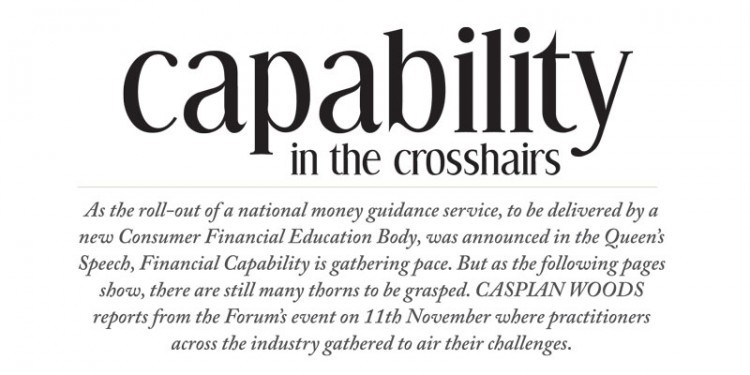As the roll-out of a national money guidance service, to be delivered by a new Consumer Financial Education Body, was announced in the Queen’s Speech, Financial Capability is gathering pace. But as the following pages show, there are still many thorns to be grasped. CASPIAN WOODS reports from the Forum’s event on 11th November where practitioners across the industry gathered to air their challenges.
Does Capability make a difference? A good starting point, and one where Chris Pond has the benefit of research. “We found when people feel financially ‘in control’, they report a 15% decrease in anxiety and depression.” He confesses to having sent his researchers to check their sums when they showed that even the small move to ‘average’ capability was equated to a £500 increase in monthly salary.
Listening to the plans, for many in the audience there was a sense of ‘back to the future’. Does this herald a return of the ‘man from the Pru’ and friendly societies?
In Pond’s experience it’s important that regulated advisers go out to where customers don’t feel threatened, “and that’s probably not the office”. From her work with the disadvantaged, Faith Reynolds highlights the trust bond: “in debt meetings, clients ask not to have Home Collected Credit included in consolidation agreements as they don’t want to let down Dave, the adviser who comes round their house.” Clive Cowdery concedes: “we have lost something we shouldn’t have. OK, it was expensive and inefficient, but it was a valued social role.”
To continue reading the full published version, please download the PDF document.

